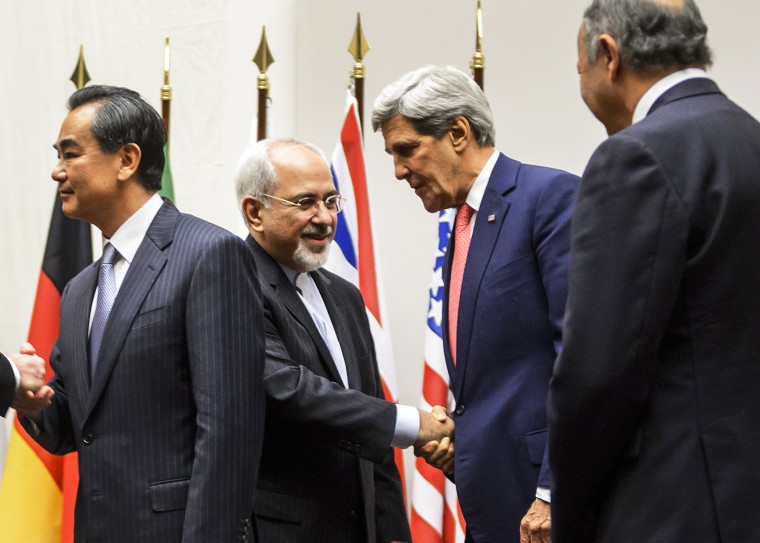Last week, the
Wall Street Journal published an interesting scoop: President Obama "
secretly wrote" to Iran's Supreme Leader Ayatollah Ali Khamenei in mid-October, describing "a shared interest in fighting Islamic State militants in Iraq and Syria."
The same report noted that Obama's letter stressed to Khamenei "that any cooperation on Islamic State was largely contingent on Iran reaching a comprehensive agreement with global powers on the future of Tehran's nuclear program by a Nov. 24 diplomatic deadline."
The point of the correspondence seemed pretty obvious: the U.S. president wants to keep nudging Iran closer to a nuclear deal, while at the same time, taking full advantage of the fact that Iran and ISIS are enemies.
Republicans were "
outraged." Sen. John McCain (R-Ariz.) complained to msnbc's Andrea Mitchell that the White House is "
playing footsie" with Iran. Failed presidential candidate Mitt Romney, always a font of wisdom on foreign policy, said he was "
stunned" and "astonished" that Obama would "legitimize" Iran -- as if international talks with Iranian leaders hadn't already sent that signal -- before adding that the letter was "an enormous error."
Trita Parsi
argued persuasively that Obama's letter "just points out the obvious: that Iran and the United States share a common interest in defeating the Islamic State and that real cooperation cannot take place until the nuclear issue is resolved."
The real outrage is that communicating with key players in the Middle East in order to advance U.S. security is still considered outrageous in far too many policy and political circles in Washington. [...] The United States cannot and should not shoulder the responsibility for stopping the Islamic State alone. Nor can U.S. bombs alone pave a path out of the Middle East's perilous situation. Real cooperation and coordination is needed between key players. Iran -- the Middle East's second-largest country by population and a major influence on the Shiite Muslim world -- is one of these key players. Moreover, Iran shares 900 miles of border with Iraq and has good relations with governments in both Baghdad and Damascus. Like it or not, Iran is an unavoidable player in the fight against the Islamic State.
Parsi added that Obama has "his eye on a longer-term strategy -- certainly far more than Bush did" -- that includes leveraging Iran's concerns about ISIS, which is a threat to Iranian stability, but which Iran can't fight alone.
Jackson Diehl
added this morning:
U.S. and Iranian forces are already working in tacit alliance in Iraq against the Islamic State, a point Obama apparently made to Khamenei. As they look beyond a potential nuclear deal, the president's aides are suggesting that Iran could also support a new attempt to reach a political settlement in Syria -- one that would leave at least part of the current, Iranian-backed regime in place. [...] Obama's bet is that the course of "direct diplomacy" is more likely to produce an acceptable outcome. His assumption is that there is a formula for an Iranian nuclear program and governments in Syria and Iraq that both Khamenei and U.S. allies can live with.
Diehl seems to think that Obama's bet won't pay off. Time will tell. But imagine the possibilities if the president's strategy works.
